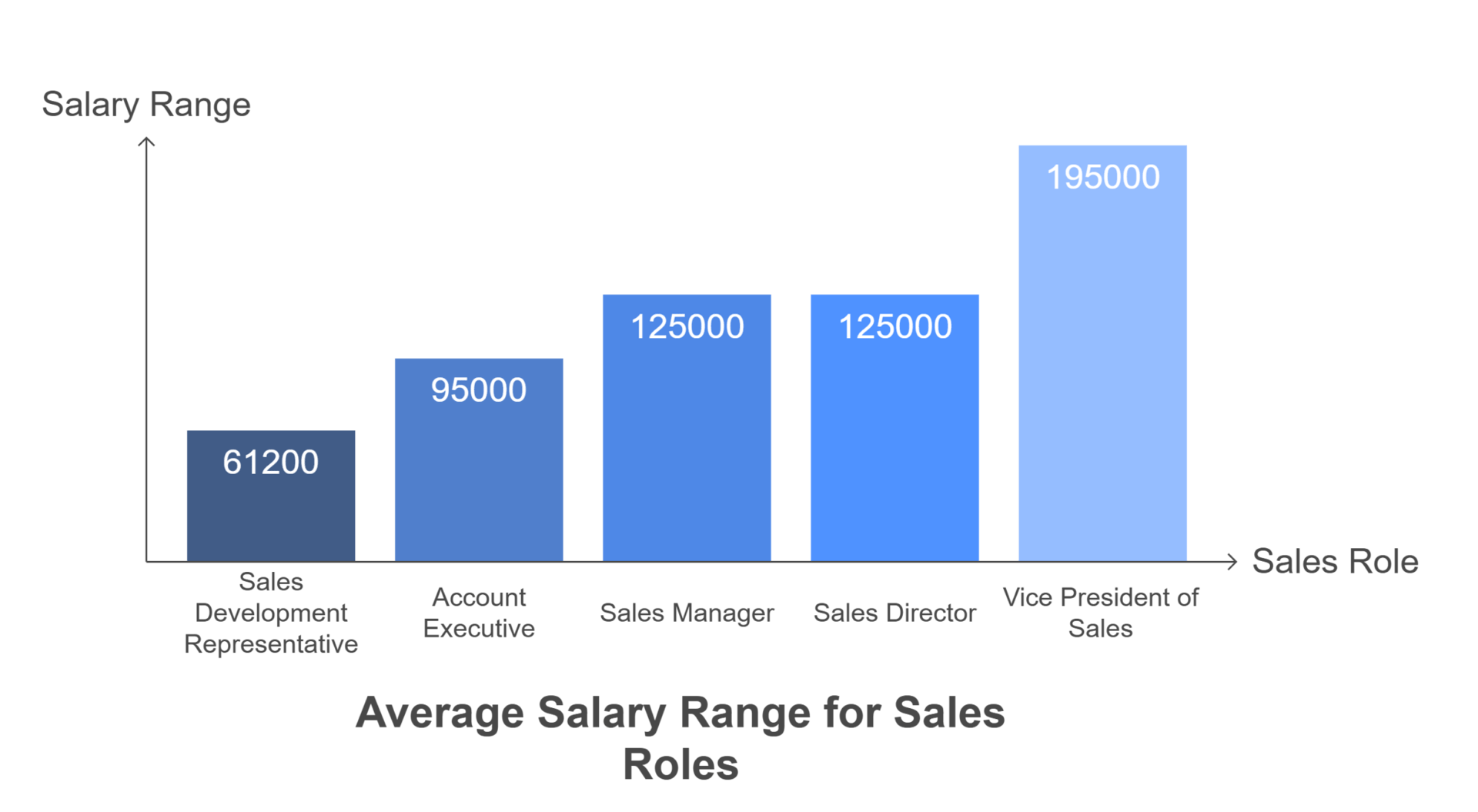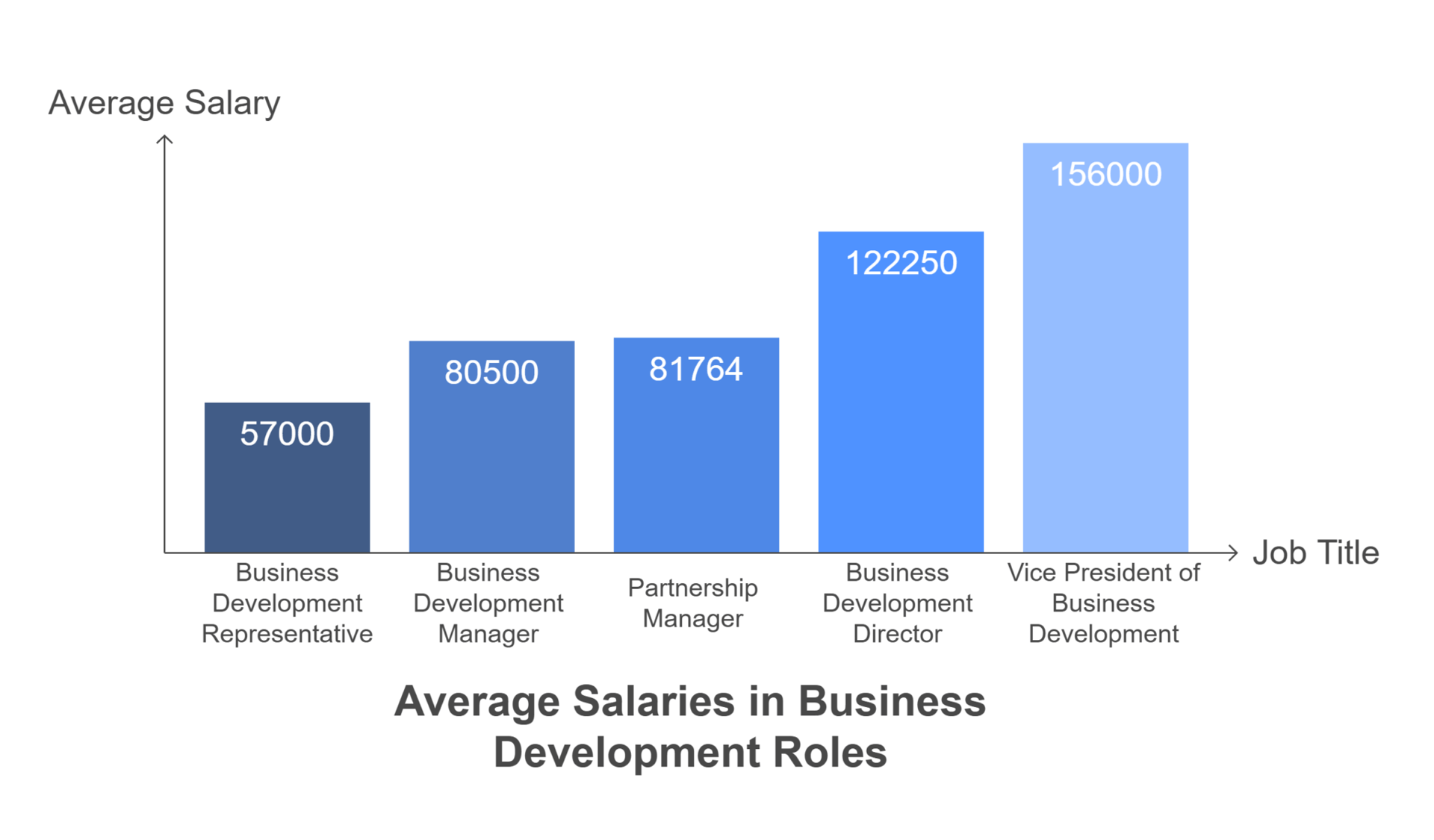When it comes to building a powerhouse team, understanding the difference between sales and business development roles is crucial. While they may seem interchangeable at first, these roles each serve a unique purpose in driving growth and revenue. Let’s dig deeper into what makes them tick, break down the job titles, and explore the skills and salaries that go with them—without all the business jargon.
What’s the Difference Between Sales and Business Development?
Let’s clarify this before we dive into the job titles. Here’s the deal—sales and business development are like two sides of the same coin. They overlap enough to seem similar but have their own clear-cut responsibilities.
- Sales: These folks are the closers. They take leads, explain the value of the company’s offerings, and get those deals across the finish line. Sales teams focus on short-term targets—directly impacting revenue.
- Business Development: On the other hand, business development pros are more like architects. Their job is to build relationships, identify growth opportunities, and lay the groundwork for all those deals to happen. They don’t necessarily close sales themselves, but they ensure the pipeline is filled with potential.
Both roles are key to the big picture, working together to bring in new business and retain it for the long haul.

Job Titles in Sales
The best sales teams are made up of specialized rockstars who know their role inside and out. Let’s look at some of the most common sales job titles and what they actually mean:
- Sales Development Representative (SDR)
- Account Executive
- Account Manager
- Sales Manager/Sales Directors
- Vice President of Sales
Sales Development Representative (SDR)
SDRs (or sales development reps) are the team hustlers. They’re the ones you’ll find reaching out to potential customers to showcase what your product or service can do for them. They’re great at building connections, answering questions, and nudging leads toward the next step—like meeting your account execs.
What skills do you need to be an SDR? Interpersonal skills tops the list, along with being comfortable presenting products and services in clear, relatable ways.
Account Executive
Once the SDR passes the baton, account executives go in to seal the deal. These folks are closers. They build tighter relationships with hot prospects and are often the faces of that pivotal last meeting where contracts get signed.
Account Manager
So you’ve locked in a client—awesome! But now what? That’s where account managers come in. After the deal is done, they step in to nurture the relationship. The main goal here? Keep the client happy, find ways to enhance their experience, and make sure they stick around.
Key difference? Account executives win clients, account managers keep them.
| Attributes | Account Executive | Account Manager |
|---|---|---|
| Point of Contact | Before and during the sale | After the sale |
| Goal | Introducing product/service, negotiating contracts and Closing deals | Strengthening relationships, ensuring satisfaction and renewing deals |
| Clients | New prospects | Existing customers |
Sales Manager or Sales Director
Sales Managers and Sales Directors manage the sales team, keeping everyone on track and motivated. Think of them as the coach who creates the game plan, recruits new players (SDRs), and makes sure everyone hits their targets.
Vice President of Sales
This is the top sales leadership role in most companies. The VP of Sales oversees it all—strategizing, reviewing performance, and directing the sales machine towards big-picture revenue goals.
What Skills Do You Need for Sales Jobs?
Want to thrive in a sales role? Here are the go-to skills top salespeople bring to the table:
- Time Management: Sales is fast-paced, and there are always targets to hit. Staying on top of tasks and deadlines is a game-changer.
- Communication and Presentation Skills: Being able to deliver a killer demo can be the difference between “I’ll think about it” and “Where do I sign?”
- Closing Techniques: Closing a deal—especially those tricky, high-stakes ones—requires skill, confidence, and patience.
- Product Knowledge: If you know your product inside and out, explaining its value gets a lot easier.
- Prospecting: Great salespeople find opportunities everywhere.
Average Salary for Sales Roles
Sales compensation typically comes as a combination of a base salary along with performance-based bonuses and commissions. Roles higher up in the hierarchy, like Sales Managers or VPs, tend to earn more because they carry greater responsibility for overall team success.
Average Sales Salaries by hierarchy:
- Sales Development Representative (Entry Level): $42,000 – $61,600
- Account Executive (Mid-Level): $54,000 – $95,000
- Sales Manager (Mid-Senior Level): $45,000 – $125,000
- Sales Director (Senior Level): $70,500 – $125,000
- Vice President of Sales (Executive Level): $125,000 – $195,000

Job Titles in Business Development
Business development jobs are all about pushing the company forward with smart strategies, partnerships, and planning. Want to know what the titles mean? Let’s break it down:
- Business Development Representative (BDR)
- Business Development Manager (BDM)
- Partnership Manager
- Business Development Director
- Vice President of Business Development
Business Development Representative
These are the researchers of the group. Their job is to identify and qualify leads—usually inbound ones that come through marketing efforts. From there, they pass the info along to others who will handle deeper conversations.
Business Development Manager
Here’s where leadership starts to factor in. BDMs guide the team of BDRs and focus on building long-lasting, profitable relationships for the company—whether that’s drafting partnership contracts or mapping out long-term growth strategies.
Partnership Manager
Partnership managers work on collaborations between your company and others. The goal here? Build win-win alliances so both sides get something out of the deal while boosting revenue.
Business Development Director
This role is big-picture focused. Business development directors lead the charge in connecting the sales and marketing departments and making sure everything aligns with the company’s vision of growth.
Vice President of Business Development
Similar to the VP of Sales, this position leads all business development strategies and activities, ensuring the company is constantly seizing new opportunities and staying ahead of the curve.
What Skills Make a Great Business Developer?
Business development requires a mix of forward-thinking creativity and a knack for strategy. Let’s break down the must-have skills:
- Negotiation: While they’re not closers, business developers need sharp negotiation skills to ensure deals make sense for all parties involved.
- Research: Knowing the market, industry, and potential partners is a big edge in striking up deals.
- CRM Knowledge: Keeping tabs on leads and partnerships in a CRM (Customer Relationship Management) tool is a non-negotiable in modern business development.
- Strategic Planning: These roles plan several steps ahead, weighing the company’s goals against resources and industry trends to chart an effective path forward.
Average Salary for Business Development Roles
Just like in sales, business development professionals earn a blend of base pay and bonuses. The more senior the role, the higher the pay—especially when these positions directly contribute to long-term growth and partnership success.
Average Business Development Salaries by hierarchy*:
- Business Development Representative (Entry Level): $45,000 – $70,000
- Business Development Manager (Mid-Level): $61,000 – $100,000
- Partnership Manager (Mid-Senior Level): $63,500 – $110,328
- Business Development Director (Senior Level): $93,000 – $151,500
- Vice President of Business Development (Executive Level): $119,000 – $193,000

Conclusion
Sales and business development might look similar on the surface, but both bring something unique to the table. Together, they create a formula for success, boosting revenue and growth—not just in the short term but for the long haul.
Looking to improve your sales or business development game? Partnering with experts or outsourcing a specialized team can be a great way to test the waters and elevate your results. Whatever you choose, understanding the roles is the first step to building a killer team.







